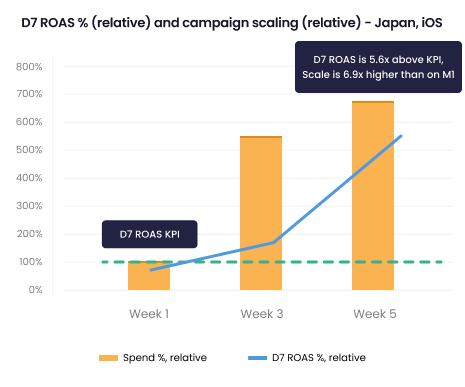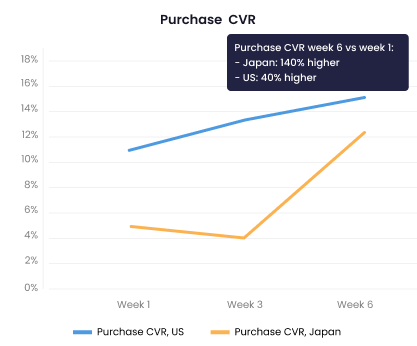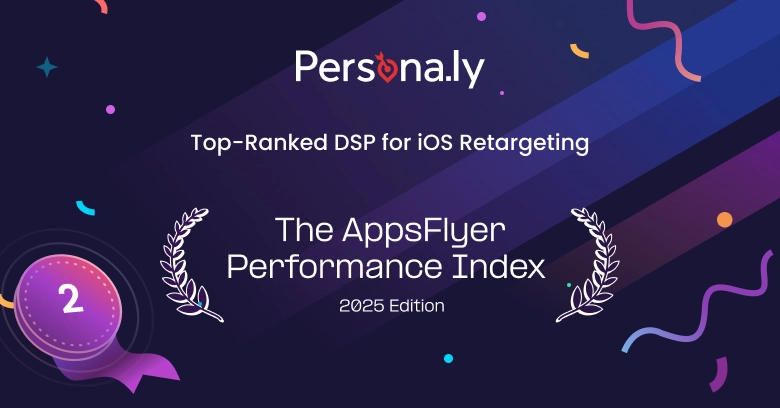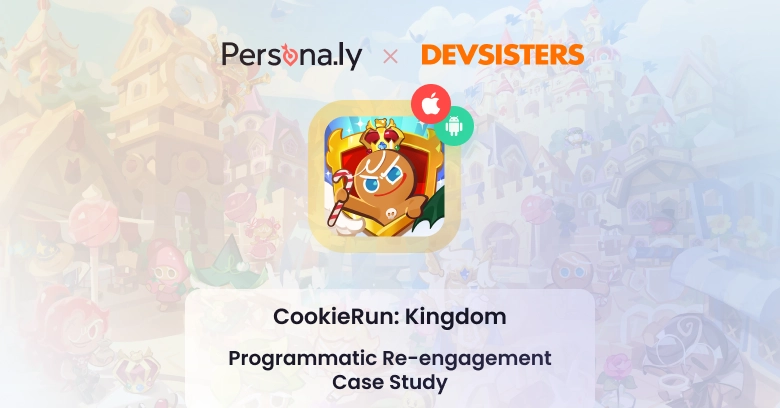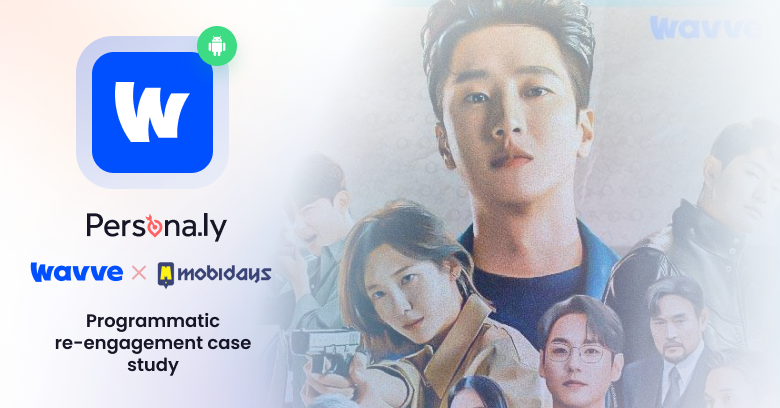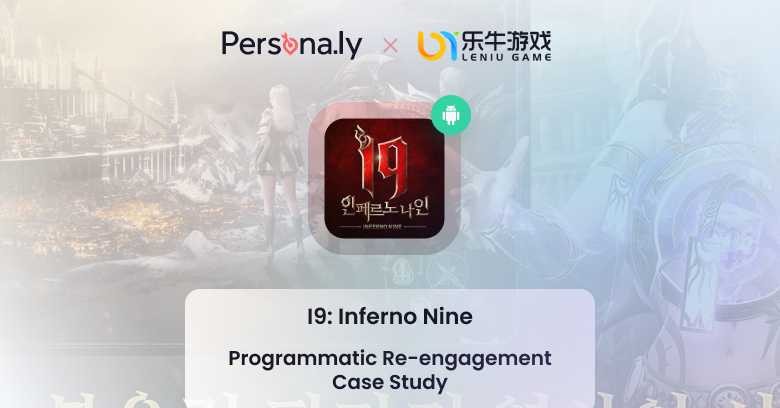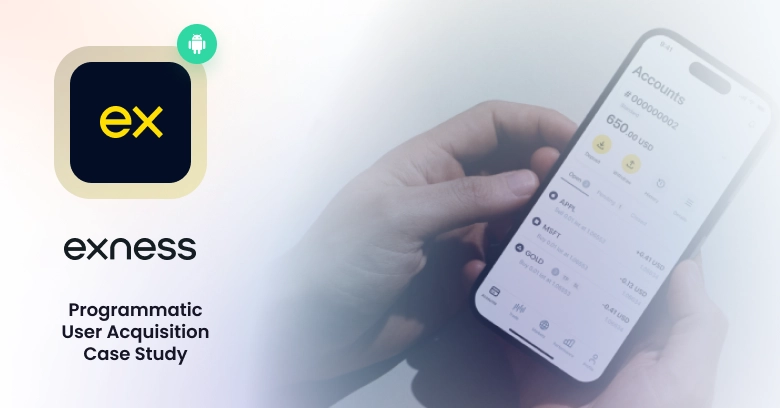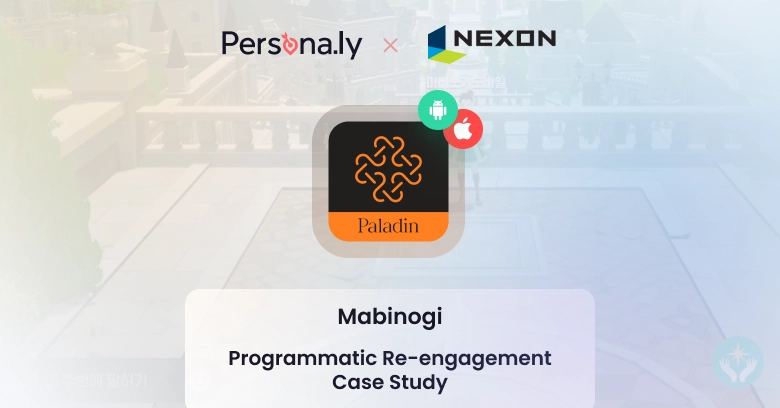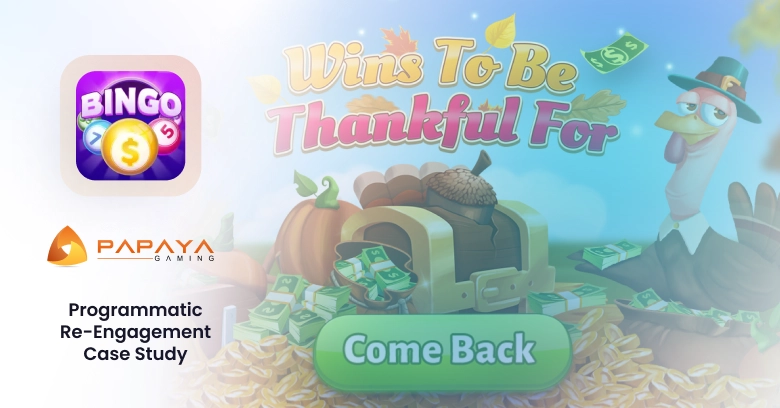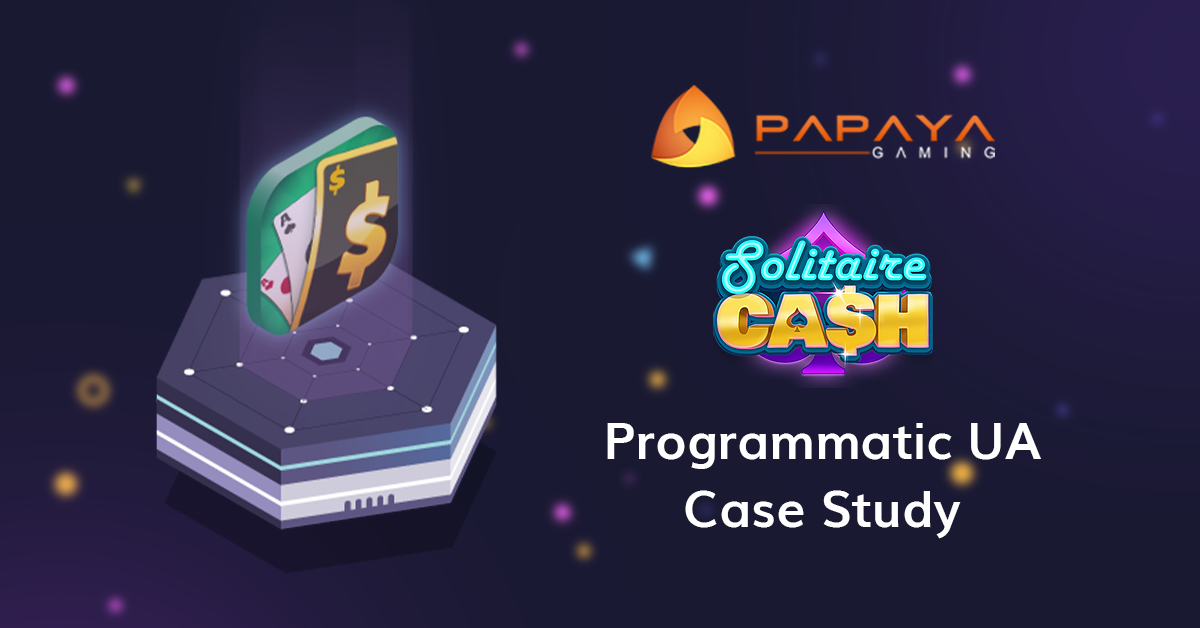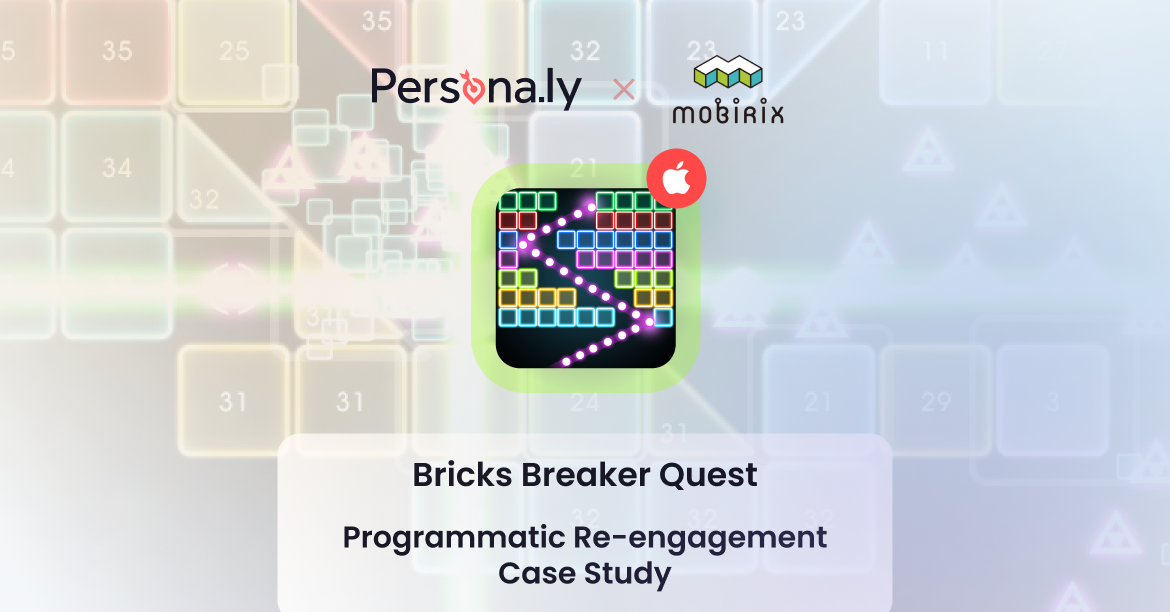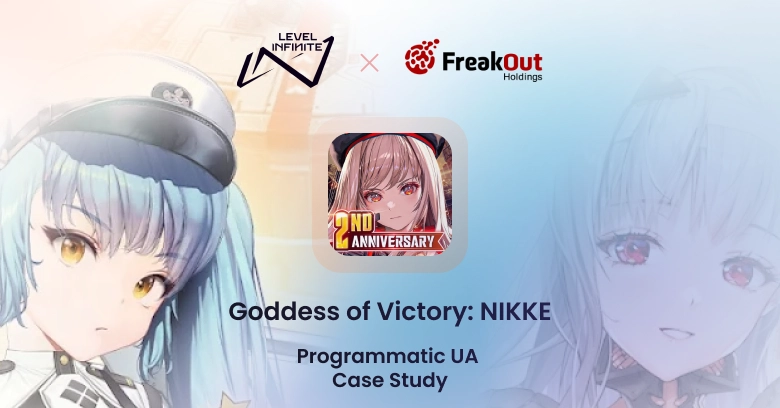
How we outperformed D7 ROAS 5.6x for Grand Summoners hardcore RPG on iOS
Download the pdf version of the case study
We worked with NextNinja, a leading Japanese game developer, to acquire iOS and Android users in the U.S. and Japan and to re-engage the existing Android users in the U.S. for its top-grossing hardcore RPG game Grand Summoners.
Campaign Goals
- UA campaign — Our goal for this campaign was to acquire highly engaged users who would make in-app deposits, with D7 ROAS being a KPI.
- Re-engagement campaign — For this campaign, we aimed to re-engage churned users of the game, focusing on those with a higher chance of continuing to play the game and making purchases.
Results at a Glance:
6.9x
UA campaign scaling in 5 weeks (iOS JP)
740%
D7 ROAS above the KPI on week 1 (UA iOS US)
34x
34x – D7 ROAS higher for non-payers on week 7 vs. week 1 (re-engagement campaign)
Process
Naturally, our approach was different for the two platforms:
On iOS: For post-iOS 14.5 / SKAN campaigns, we applied Contextual Distance targeting. Using machine learning capabilities, our in-house DSP targets placements based on the contextual distance between the promoted bundle and the placement. NLP (Natural Language Processing) utilization allows us to pick the placements based on the store description rather than a category. Our bidder focused on the most contextually close app categories (RPG, manga) whose users showed the highest engagement during the initial campaign period.
On Android: In the beginning, to solve a cold-start problem, we built a lookalike audience of highly engaged app users. Following the initial campaign exploration, once enough data was gathered to safely predict which personas would install the game, engage in the process, and make an in-app deposit, we gradually expanded the audience while focusing on user segments who had a higher probability of converting into paying users.
Campaign Results
UA Campaign Scaling and D7 ROAS
Using the Contextual Distance approach during the initial exploration phase, we acquired highly engaged users who would make in-app deposits. This allowed us to outperform the D7 ROAS KPI in the first week of running the campaign in the U.S. and the second week of running the campaign in Japan.
Once we collected the initial number of installs, we started optimizing the campaign toward deep-funnel KPI (D7 ROAS). Within the next few weeks, once our ML algorithm established a unique classification model allowing us to predict based on multiple factors which audience segments were going to click the ad, install and play the game, and eventually make in-app purchases, we safely scaled the campaign while outperforming D7 ROAS KPI by a significant margin for both geos.
Further campaign optimization that focused on targeting users who were more likely to make in-app purchases allowed for a massive scaling by 6.9x vs. week 1 while outperforming the D7 ROAS KPI by 460%.
Purchase CVR – Bidding Strategy Optimization
The typical learning curve for a hardcore RPG game like Grand Summoners lasts relatively longer compared to that for other genres. This is because it normally takes users longer to engage deeply in the game and the overall tutorial process takes significantly longer. Additionally, hardcore RPG players tend to stick with familiar titles rather than switching to different games, and they prefer to maintain progress within the same app.
Processing over 60 data points before serving each impression, our ML algorithm factors in multiple attributes and their combinations to ensure high performance. While the contextual approach had already brought results well above the KPI, our bidder focused on the following:
- Device model and OS. While all iPhones are considered high-end devices, our bidder preferred the more expensive models with the latest iOS version installed.
- User hour. We targeted users at the most prominent hours (leisure time) when they were more likely to immediately engage with the app.
Our approach of displaying the ads at the relevant placements, at the most opportune time, and to the right audience segments allowed us to double the FTD (first-time deposit) conversion rate.
Re-engagement Campaign
Having access to the initial UA campaign data boosted the ML algorithm’s learning, allowing it to design a unique classification model. This model helped us focus on the most engaged user segments during the initial retargeting campaign phase and optimize the campaign toward a deep-funnel target during later stages.
Using our proprietary Dynamic Audiences segmentation engine — available to our clients at no extra cost — we quickly generated audience segments of users who churned within a specific timeframe. Dynamic Audiences integrates directly with clients’ MMP. This allows us to update the audience in real-time to continuously add freshly churned users without delay and suppress segments of users who returned organically.
Initially, the users were divided into two segments:
- Payers: users who made in-app purchases before and churned;
- Non-payers: users who had installed the app, never made purchases, and eventually churned.
While the payers segment was an easier audience to crack, the main challenge was to sift through the non-payers segment to identify the best-converting cohorts, targeting only those who had higher chances of converting by making in-app purchases.
The daily ML model optimization allowed us to improve predictions, targeting, and outcomes. This allowed us to increase the D7 ROAS for the non-payers segment by 3300% by week 7.
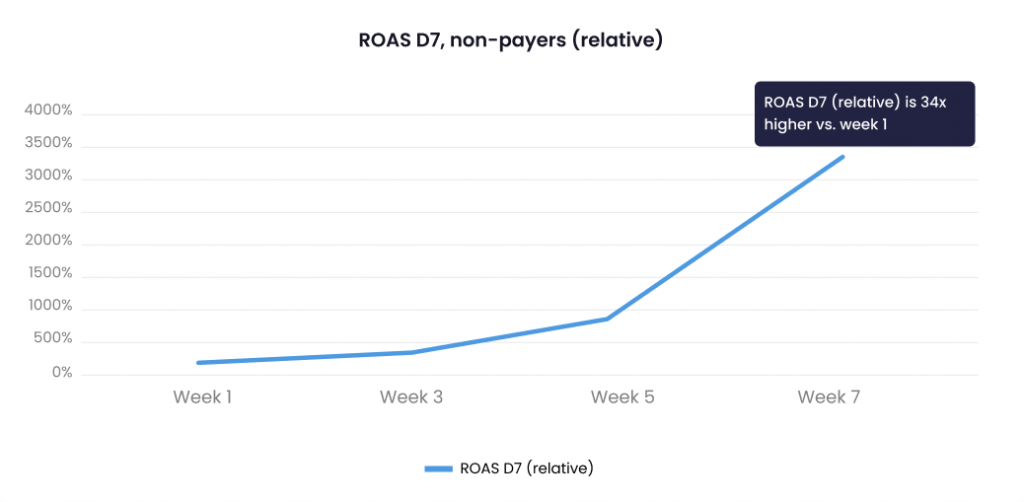
“Our collaboration with Persona.ly has been smooth from the start. They communicate fast and efficiently, always happy to share their insights and respond to our requests.
The team at Persona.ly stands out for its high level of professionalism and effective strategy implementation. Our campaigns benefited from their precise targeting and constant campaign improvements, which led to outstanding campaign performance.”
Masayuki Yamagishi, CEO and General Manager at NextNinja
About NextNinja
NextNinja is a Japanese game developer and publisher of top-grossing mobile and console games across the globe. Its leading products — Grand Summoners and Touhou LostWord — are enjoyed by millions of users in over 80 countries.
“It is a great honor to be working with NextNinja.
Due to sharing common values of transparency we were able to establish great communication with their savvy and performance-driven team from the beginning of our collaboration.
Persona.ly’s machine learning capabilities have proved themselves yet again. By combining multiple factors our bidder has helped the client acquire highly engaged users and sift through the right ones in order to retarget, to significantly surpass the KPI.”
Muneaki Takao, Country Director – Japan at Persona.ly
About Persona.ly
Persona.ly is a mobile-first DSP operating worldwide. Using our proprietary bidder and machine-learning algorithms, we offer transparent, performance-driven, highly targeted UA and retargeting solutions at scale with access to over 2.8 million ad auctions per second. We are trusted by Nexon, Papaya Gaming, Rapido, Games24x7, Ubisoft, Tilting Point, and many others.
Persona.ly strives to be more than just a vendor for its partners, but a partner that helps generate actual value, growth, and broad marketing insights that can be used across channels.

